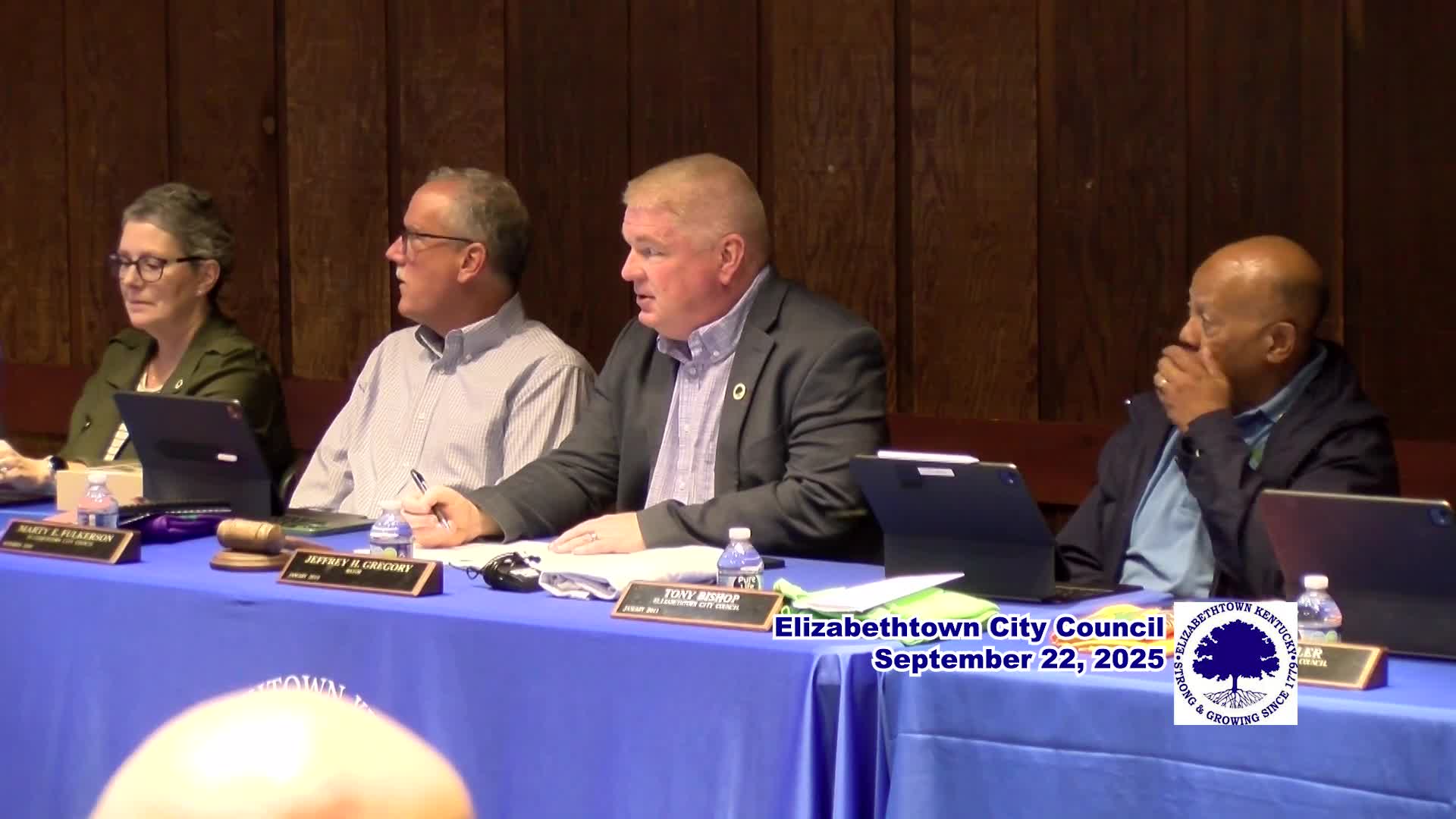Consultant recommends sizable gas-rate increase to close operating shortfall; council briefed on options
Get AI-powered insights, summaries, and transcripts
Subscribe
Summary
A consultant told the council that Elizabethtown's municipal gas base rates have not been adjusted since 2012 and recommended rate increases to restore cash flow. Scenarios presented would raise typical residential bills by about $17.80 to $23.16 monthly depending on the option; the consultant favored a middle scenario to replenish fund balance.
Elizabethtown ' A consulting presentation to the Elizabethtown City Council on Sept. 22 concluded the city's municipal gas base rates have not kept pace with non-gas operating costs and recommended raising facility charges and base rates to stop multi-year cash deficits.
Scott Heath of Magnolia River Services, which acquired much of Heath and Associates earlier in 2025, told councilors the last base-rate changes took effect in February 2012. His cost-of-service review found non-gas operating costs rose from about $2.5 million in 2009 to roughly $4.2 million in fiscal 2024, and that the gas utility experienced cash-flow deficits in recent years ranging from about $927,000 to more than $3 million annually.
Heath said the gas supply (the commodity) is a pass-through; the recommended rate changes address base or non-gas revenues that cover operations and capital. Key findings included: the system's industrial and interruptible customers use a large share of gas volumes while general and heat-rate customers comprise most accounts but were not covering their allocated costs; storage-field operations require updated tracking; and overall the city's facilities charges were low compared with peer systems.
Recommended changes included raising monthly facilities charges (the fixed monthly amount customers pay regardless of usage): the consultant recommended increasing the general and heat-rate facilities charge from $6 to $10 per month, the high-load-factor charge from $25 to $40, and the industrial facilities charge from $125 to $200. He presented three scenarios for combined facility and base-rate changes:
- Scenario 1 (breakeven): typical general-customer monthly bill increase ~ $19.80; heat-rate (residential) increase ~ $17.80. - Scenario 2 (restore fund balance): general-customer increase ~ $21.50; heat-rate (residential) increase ~ $19.30 (consultant favored this scenario to replenish fund balance). - Scenario 3 (larger replenishment): general-customer increase ~ $23.16; heat-rate (residential) increase ~ $20.87.
Heath said the average residential customer would see an increase of roughly $17.80 to $20.87 a month depending on the scenario; he noted even with the recommended increases, the city's rates would remain below many neighboring systems in Kentucky.
Why it matters: The consultant warned the current base-rate structure is not recovering allocated costs, producing multi-year cash deficits; adopting a rate adjustment would restore cash flow and help fund capital and operating needs.
Questions and next steps: Council members asked whether the utility could expand its customer base to spread cost; Heath said he was surprised the customer count has not grown with the community and suggested the city could explore recruitment of new customers and further analysis on why growth has lagged. The consultant also recommended simplifying the weighted-average cost calculation for the storage field and better tracking of in/out gas accounting.
No formal rate change was adopted at the Sept. 22 meeting; the presentation provided councilors with scenarios and recommended next steps for ordinance or rate-schedule changes.
